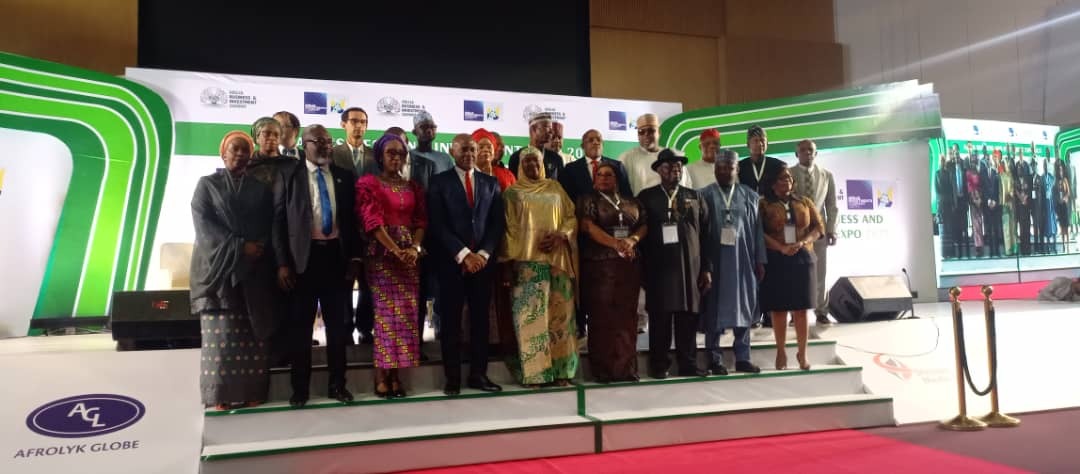
The European Union Ambassador to Nigeria and ECOWAS, Amb. Gautier Mignot, has pledged the bloc’s commitment to neutrality in its engagement with Nigeria’s electoral process, stating that the EU is not in the country to interfere in political affairs.
Mignot made this remark on Tuesday during a visit to the headquarters of the Independent National Electoral Commission (INEC) in Abuja, where he led an EU delegation.
At the meeting, INEC Chairman, Mahmood Yakubu, clarified that the commission does not receive direct financial contributions from development partners for its activities.
The ambassador noted that the EU’s role in Nigeria’s democracy focuses on providing expertise and learning from the country’s unique democratic journey. He insisted that the bloc has no political interest in Nigeria and no preference for any political party.
“This is why the European Union is very happy and honoured to have a very long and very strong cooperation with the Nigerian general on electoral matters in particular. This cooperation is based on respect for each other’s sovereignty,” the EU envoy stated.
Mignot added: “We are not here to teach lessons or to dictate what you have to do, but just to bring some of our experience, learn from you and bring some expertise, and this is what we try to do.
“And of course, another very important principle is political neutrality. We are not here to favour one political force or one party, and we are not here to meddle in the internal political life of Nigeria. So political neutrality is always also at the core of our cooperation.”
Mignot also lamented the challenges facing democracies globally, including the rise of digital technologies and the spread of disinformation, which complicates the democratic process.
The EU ambassador noted that a credible electoral system is vital for assessing the trust of citizens and stakeholders, stressing that INEC’s role is crucial in achieving a credible electoral process.
“And of course, we have an Electoral Observation Mission, like the one we had in the last election, in particular the federal elections in 2023. And we will have a follow-up on this electoral mission soon.
“So my message is really to tell you that in these troubled times, in this fast-evolving world, we all need constant and faithful partners. And you can count on the European Union, Mr. Chairman, ladies and gentlemen, to do that for Nigeria and for INEC in particular,” he said.
Yakubu, noting INEC’s longstanding partnership with the EU, commended the role of development partners in strengthening Nigeria’s democratic process.
“I would like to seize this opportunity to clarify a matter over which there is some misunderstanding in certain quarters. For the record, the Commission does not receive direct funding, and we do not have an account into which donor funds are warehoused,” Yakubu stated.
The INEC chairman revealed that the EU and other development partners only provide indirect support in areas such as the publication of reports, retreats, and engagement with stakeholders, as well as consultancy and technical support services in various areas through implementing partners selected and appointed by them.
He said the support does not involve any direct funding of core electoral activities of the Commission, such as voter registration, production of PVCs, training and remuneration of ad hoc staff, electoral logistics, and the procurement of sensitive materials, including election technology.
He clarified that these activities remain the sovereign responsibility of the Federal Government of Nigeria.
Reflecting on the 2023 General Election, Yakubu revealed that INEC has made significant strides in implementing recommendations from observers, including those made by the EU Election Observation Mission.
He said this has led to improvements in areas such as the training of ad hoc staff, the functionality of the BVAS for voter accreditation, and the seamless coordination of voter registration and PVC collection.
Yakubu stated: “There has been incremental improvement in our electoral process over the last six electoral cycles. However, we also appreciate that a lot of work lies ahead. Since the 2023 General Election, the Commission has received reports from many of the 206 national and foreign groups and international organisations accredited to observe the elections, including the European Union Election Observation Mission (EU-EOM), which made a total of 23 recommendations, of which eight require action by the Commission and 15 by the executive, judiciary and legislative arms of government as well as other stakeholders such as civil society organisations, the media, faith-based organisations, and political parties.
“The eight specific recommendations for INEC relate to the dissemination of the Commission’s regulations and guidelines for election, training of election duty staff, deployment of electoral technology, result management process, continuous registration of voters, the cleaning up of the voters’ register, the participation of marginalised groups in the electoral process, and voting by Internally Displaced Persons (IDPs).”
Yakubu said INEC has commenced the implementation of aspects of the recommendations that only require administrative action by the Commission.
“For instance, in some of the off-cycle, re-run, and bye-elections conducted since the General Election, there has been improvement in the quality of training of ad hoc staff involving the deployment of more BVAS machines for this purpose. There has also been tremendous improvement in the functionality of the BVAS in voter accreditation using fingerprint or facial authentication. Furthermore, election results are more speedily uploaded to the IReV.
“Voter registration in Edo and Ondo States ahead of the Governorship elections was better coordinated, and the collection of PVCs was almost seamless, with 80% of the cards collected by eligible voters. The perennial problem of logistics was also vigorously addressed in the recent Ondo State Governorship election. We are working hard to improve other aspects of electoral operations. The arrival of your mid-term mission later this year will provide an opportunity for a full review of the 2023 EU-EOM report,” he added.





